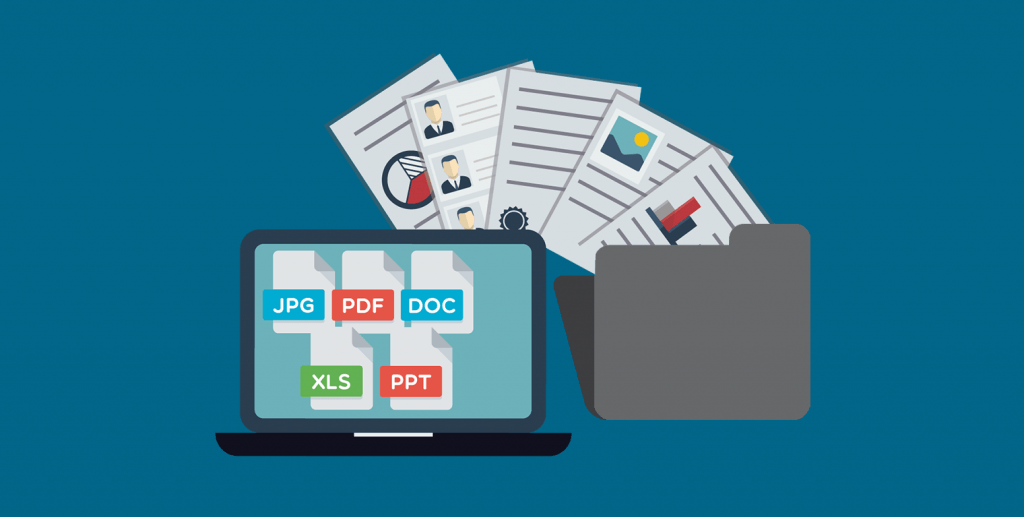5 Common Document Management Mistakes and How to Avoid Them
Index Of The Blog
Common Document Management Mistakes

Have you ever spent hours searching for a document in the office, either online or in your file cabinet?
Unfortunately, many of us are unorganized when it comes to keeping track of our documents and files. However, this not only costs us time but can also put the safety of the company at risk.
We are all guilty of making document management mistakes from time to time. Keep reading to learn five of the most common—plus, how to avoid them.
1. Not Securely Disposing of Old Documents
When managing business and personal data for a company, knowing how to safely dispose of old documents is key. If information gets into the wrong hands, your company is at risk of hacking or identity theft.
Never just toss old documents in a recycling bin or trash can—always dispose of them securely. The best way to do this is usually to finely shred unnecessary documents.
Use an industrial-strength shredder—the job will get done faster!
This makes it much harder for thieves to find the personal details of your company.
2. Weak Security Systems
One of your number one priorities for the company against common cyber threats. If hackers can breach your security systems, personal, financial, and confidential data is at risk.
To stay safe, all digital documents need to be safely stored on your company’s network̦. This should contain a firewall and malware protection which is regularly updated.
Never leave documents unattended on a computer or on a USB, where they can easily be stolen.
3. Inconsistent Online Folders and Naming
When managing documents online, you need to make them easy to find—especially when working on group projects.
Create orderly and systematic folders and always name documents appropriately. The name should make it clear enough that anyone looking at the document can tell what it is.
When saving documents from work made online, use c# pdf creator to turn files into PDFs that can easily be saved.
4. Not Password Protecting Confidential Digital Documents
Confidential documents online should always be password-protected. Private files, especially those containing HR and financial data, should be saved with a password that’s required for access.
Use strong passwords that are a mix of numbers, letters, and symbols, and won’t be easily guessed.
This way, the documents aren’t seen by the wrong people, either within the company or externally.
5. Archiving In-House
You may think that archiving documents in-house is the easiest way to save copies of important paperwork. However, storing materials in a closest or file cabinet actually costs your company a lot of valuable space within the office.
It also means less security for your documents. Consider storing them in off-site storage locations instead.
This gives you several big advantages, including 24/7 supervision, fire protection, and entries and exits monitored by staff and security cameras. The small cost of storing off-site will provide your company with many more benefits than storing in-house.
Avoid These Common Document Management Mistakes
Even in large corporations, document management mistakes are common—both in hard copy and digital forms.
Documents contain essential information that your company depends on for its success, so don’t risk their safety. Instead, use the tips mentioned above to create a new organizational system for your documents that will keep them secure and easy to find.
Get started today and start enjoying the convenience and peace of mind provided by a better document management system!
Did you find this article helpful? If so, please check out some of our additional content.













